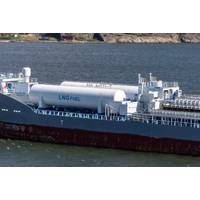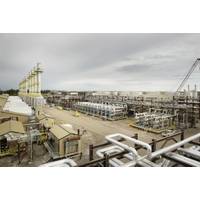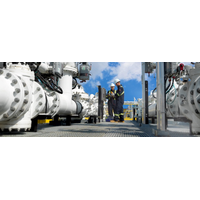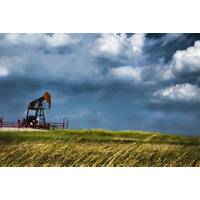Why US producers are paying attention to Canada's most popular shale play
Executives, analysts, and advisors say that U.S. producers of oil and gas are seeking new drilling territories in Western Canada's Montney Basin, an enormous shale play in a remote area. The basin is already a hub of M&A and may see even more deals in the near future. The United States has become the largest oil producer in the world as a result of extensive drilling on shale deposits over the past 15 years. After a period of rapid expansion, oil producers are less interested in drilling prospects within the Permian oilfield, which extends across Texas and New Mexico. This is because the remaining area with high-production potential has shrunk.
Canada announces new rules for reducing oil and gas methane emission
Canada has announced rules that have been promised for years to reduce methane emissions in the country's oil & gas sector. The regulations set out a way?for?Canada, the fourth largest oil producer in the world to reduce its greenhouse gas emissions by 75% from 2014 levels by the year 2035. The new rules fulfill the promise made by Mark Carney, Prime Minister of Canada to strengthen Canada's methane regulations. However, they allow for a slightly extended timeframe than that announced in previous drafts under Justin Trudeau's predecessor. Trudeau’s never-implemented regulations called for a reduction of 75% in methane emission by 2030.
Sources say that Canada could drop its oil emission cap as part of a new climate plan
Three sources familiar with the discussions said that the Canadian government was in talks with Alberta and energy companies about removing a federal cap for emissions in the oil and gas industry if both the province and the industry reduced their carbon footprints in other ways. Sources who weren't authorized to publicly discuss the discussions said that the government of Prime Minister Mark Carney has discussed the removal of the cap with the oil companies, and Canada's leading oil producing province, if they made other environmental concessions. Canada's emission cap has yet to be implemented by legislation.
Sources say that Canada could drop its oil emission cap as part of a new climate plan
Three sources familiar with the discussions said that the Canadian government was in talks with Alberta and energy companies about removing a federal cap on the emissions of the oil and gas industry if they reduced their carbon footprints in other ways. Three sources who weren't authorized to publicly discuss the talks said that the government of Prime Minister Mark Carney has discussed the removal of the cap with the oil companies and Canada’s top oil producing province if both parties make other concessions on the environment. The legislation to implement Canada's emission cap is still pending.
Sources say that Canada could drop its oil emission cap as part a new climate plan
Three sources familiar with the discussions said that the Canadian government was in talks with Alberta and energy companies about removing a federal cap on the emissions of the oil and gas industry if they reduced their carbon footprints in other ways. Three sources who weren't authorized to publicly discuss the talks said that the government of Prime Minister Mark Carney has discussed removing a federal cap on emissions from Canada's oil and gas sector with energy companies and Alberta if the industry and province reduce their carbon footprint in other ways. The Canadian emissions cap is not yet implemented by legislation. The prospect of it has been discussed for many years.
Minister says Canada's LNG attracts German interest in market swaps

German companies want to swap Canadian LNG cargos off the Pacific Coast to meet European demand. Canada's Minister of Energy and Natural Resources Tim Hodson announced this on Wednesday. Canada, the fifth largest natural gas producer in the world, exported its first ever liquefied gas in June. The LNG Canada facility, led by Shell, is located in British Columbia and is the only North American LNG export location with direct access into the Pacific Ocean. Hodgson, a reporter at the Associated Press, said that European buyers are also interested in these cargoes. Mark Carney, the Canadian Prime Minister, said that Canada would discuss with Germany ways of supplying LNG.
Germany Looks to Meet European Demand with Canadian LNG

German companies are looking to buy and swap Canadian LNG cargoes shipped off the Pacific coast to help meet European demand, Canada's Energy and Natural Resources Minister Tim Hodgson said on Wednesday.Canada, the world's fifth-largest natural gas producer, shipped its first-ever liquefied natural gas export cargo in June from the recently constructed LNG Canada facility in British Columbia, which is led by Shell and is the first North American LNG export site with direct access to the Pacific Ocean.The bulk of LNG Canada's exports is expected to ship to Asia…
Alberta has eliminated the gas flaring limit in 2024.

Calculations show that energy producers in Alberta, Canada’s largest oil producing province, exceeded the self-imposed provincial limit for annual gas flaring by 2024, for the second consecutive year. Alberta's energy regulator announced late last week that it would be ending the flaring limit. The regulator, who quietly posted a bulletin to its website, is the first one to report this change. The regulator confirmed Monday that the limit had been removed and stated it was in response to the direction of the provincial government. Canada is the world's number one oil producer. Canada, the world's No. 4 oil producer, has been working to diversify its exports and move away from U.S.
Canada mentions potash and oil as a possible lever to use in the tariff dispute

Melanie Joly, Canada's Foreign Minister, told Toronto businesspeople on Wednesday that Canada may use its oil and gas exports to negotiate if U.S. import tariffs increase. Canada has announced that it will impose tariffs worth C$155 billion on U.S. imports, but so far has not indicated whether or not it would reduce the exports of important commodities to the United States. Canada exports approximately 90% of all its crude oil exports to the United States. "Of Course, there is oil and gas." "We haven't laid that out yet, guys. We kept it in our game and in our cards as cards we could play if the situation escalated, and the U.S. is aware of that," Joly stated. Joly said that U.S.
Canada will impose new tariffs on Chinese imports during the New Year
The government's latest fiscal update revealed that Canada will impose tariffs as soon as next year on a number of Chinese products as part of a larger investigation into the imports of the country. The government of Justin Trudeau has already placed a tariff of 100% on all Chinese electric cars and a tariff of 25% on the imports from China. The finance ministry had previously stated that it was exploring ways to increase the tariffs. The mid-year financial update, presented on Monday, revealed that Ottawa had decided to apply tariffs early in 2019 to certain imports from China of solar products and minerals critical to the world's economy.
Canada Environment Minister warns oil companies against retaining emissions data
Canada's Environment Minister warned Wednesday that oil companies who withheld data on emissions would be violating federal law. This was after Alberta's Premier said the province had considered measures to stop a proposed cap. Danielle Smith, Premier of Alberta, said on Tuesday that her government will introduce a motion to the legislature to allow them to challenge Ottawa's proposed cap on oil and gas emissions. Alberta, Canada's largest oil and natural gas province, is also looking into other ways to undermine the cap should it become law. These include restricting access to oil and gas installations in Alberta as well as access to emission data.
Canada proposes a sharp reduction in emissions from the oil and gas industry by 2030
On Monday, the Canadian government released draft regulations which would cap greenhouse gas emissions from the oil and natural gas sector. Producers will be required to reduce emissions by 35% from 2019 levels and 2030. In a press release, the Environment Ministry said that the regulations would create a cap and trade system to reward companies with better performance. It will also provide an incentive for polluting firms to improve their production processes. Ottawa stated that oil and gas production would still grow by 16% in 2030-2032 compared to 2019 levels, but without a cap. The Canadian GDP will only decrease by 0.1%.
After a tight win, the New Democratic Party (NDP) of British Columbia will form a government with ties to the left.
The New Democratic Party of Premier David Eby, who is currently in office, will form the next government for British Columbia. This comes after a final count of votes on Monday. It was more than a full week since the vote of October 19. The NDP won 47 seats, just enough for a majority in Canada's westmost province. John Rustad’s Conservative Party of British Columbia took 44 and the BC Green Party two. Eby, Premier of British Columbia, said that he met with Janet Austin on Monday, British Columbia's Lieutenant Governor, who asked him for the next government.
Voters in British Columbia's provincial election are focused on affordability and healthcare.
British Columbia, Canada's most western province, is preparing to elect its provincial government on October 19. Polls indicate that the incumbent New Democratic Party holds a narrow lead over the main rival Conservative Party. The provincial elections will be closely watched for clues as to how Canadians might vote at the federal election that is due to occur within the next 12 months, where Justin Trudeau’s Liberals are expected to suffer a heavy defeat to the federal Conservatives. British Columbia is a large mountainous province rich in natural resources, including forestry and gas. The top issues for voters are housing, healthcare and rising living costs.
Cenovus Energy Sets Out to Slash Emissions

Canada's Cenovus Energy on Thursday unveiled plans to reduce per-barrel greenhouse gas emissions by 30% by the end of 2030, as the country's oil industry faces growing pressure from environmental activists.The Alberta-based integrated oil and gas company said it will spend an additional C$1.5 billion on businesses run by the country's indigenous communities.Opposition from environmental and indigenous groups have stalled new pipeline projects in Canada and the United States that are needed to move Canadian crude to refineries. Investors in the region have also become more vocal about environmental…
US Judge Halts Keystone XL Oil Pipeline

A U.S. judge in Montana has halted construction of the Keystone XL pipeline designed to carry heavy crude oil from Canada to the United States, drawing a sharp rebuke on Friday from President Donald Trump.The ruling of a U.S. Court in Montana late on Thursday dealt a major setback to TransCanada Corp, whose stock dropped 2 percent in Toronto. Shares of companies that would ship oil on the pipeline also fell.TransCanada said in a statement it remains committed to building the $8 billion, 1,180 mile (1,900 km) pipeline, but it has also said it is seeking other investors and has not taken a final investment decision.The ruling drew an angry response from Trump…
Canada Environment Minister: 'No Apologies' for Oil Sector Support

Canada's top climate change official on Thursday said she would make no apologies for the nation's support for its oil producers, saying environmental and economic policies must consider the needs of all Canadians.Prime Minister Justin Trudeau's government has sought to cast Canada as a global leader in combating climate change, particularly since U.S. President Donald Trump withdrew Washington's support for an international deal to curb global warming.But Trudeau's government is also seeking to expand the country's oil industry. Canada agreed in May to buy the Trans Mountain pipeline for $3.46 billion (C$4.5 billion) to save a controversial expansion of the line…
Canada Dreams of Oil Exports to Asia, but California Beckons
The nationalization of a crude oil export pipeline in western Canada has buoyed long-standing hopes for crude exports to markets beyond the United States - but the most likely destination for much of that oil is California. Faced with declining production from Latin America and rising prices for higher-grade crudes from the Middle East, the Golden State is importing more oil from Canada - much of it via the Trans Mountain pipeline, which Kinder Morgan Canada last month sold to Ottawa for C$4.5 billion ($3.5 billion). The Canadian government has pledged to "immediately" start work on the C$7.4 billion Edmonton-to-Vancouver expansion…
Canada Ready to Cover Kinder Morgan Loss
Canada is prepared to cover some losses Kinder Morgan Canada Ltd might suffer if a proposed oil pipeline expansion is delayed and thinks other investors are ready to step in if need be, Finance Minister Bill Morneau said on Wednesday. The company has given Ottawa a deadline of May 31 to provide assurances it can proceed with a plan to more than double the capacity of its Trans Mountain line from Alberta to British Columbia. The government of the Pacific coast province opposes the project on environmental grounds. "We are willing to indemnify the Trans Mountain expansion against unnecessary delays that are politically motivated…
Canada Moves Crude One Truckload at a Time
At an Alberta oil loading terminal, a convoy of big rigs are gearing up to haul Canadian crude oil hundreds of miles through bone dry fields across the U.S. border into Montana, where the oil will be transferred to pipelines and rail cars headed south and west. Trucks loaded with crude are an increasingly common sight at the border. Production has risen in the world's fifth largest producer but full pipelines and a rail car shortage have made it difficult for drillers to ship oil out of Canada. Some oil producers are feeling the pressure from customers.